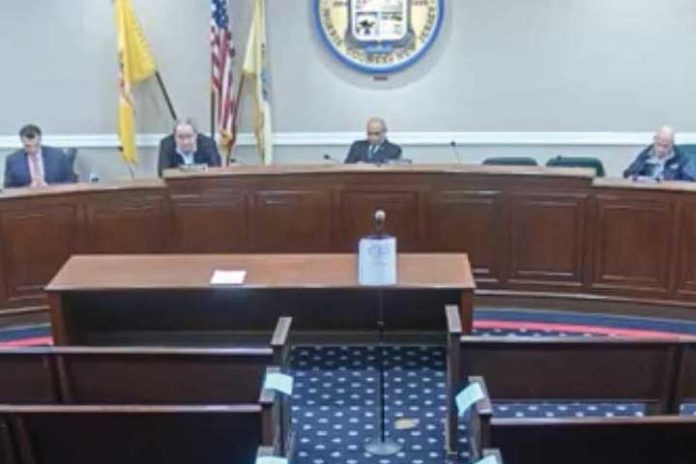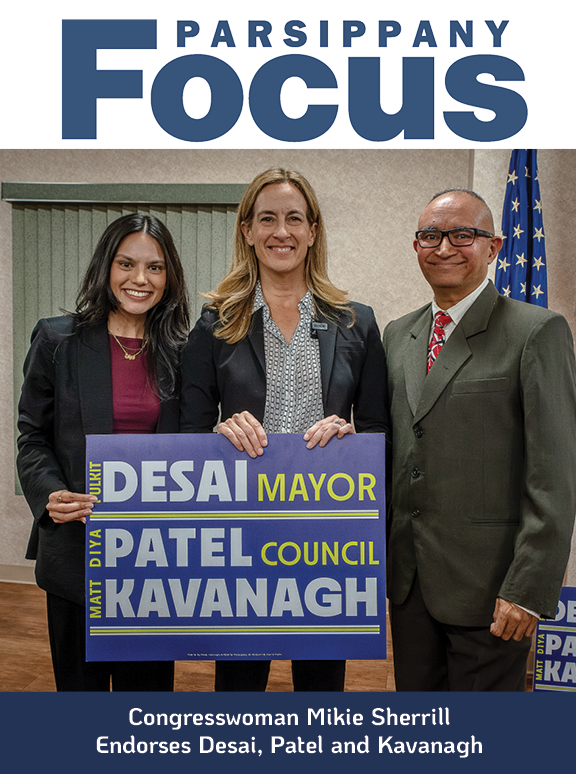By Colleen O’Dea, NJ Spotlight
This story was written and produced by NJ Spotlight. It is being republished under a special NJ News Commons content-sharing agreement related to COVID-19 coverage. To read more, visit njspotlight.com
A crisis is arguably the time when government is most needed, but the viral pandemic is making it impossible for many local governing bodies to meet in person and, importantly, in public.
Officials across the state, in municipalities large and small, are adapting by using technology to conduct business and keep people aware of their actions, sometimes without having to gather in one room and risk spreading COVID-19 among council members and the public.
“I think we witnessed an extraordinary amount of innovation in local government,” said Mike Cerra, assistant executive director of the New Jersey State League of Municipalities, who was chosen last Wednesday to lead the organization starting July 1. “Meetings are being held, usually through electronic means such as Facebook Live, Zoom, GoToMeeting and so forth. Residents are able to participate through telephonic or electronic means, and the agendas are being streamlined.”
Towns have gotten some help from Governor Phil Murphy and lawmakers in the form of a relaxation of certain deadlines and procedures while still making provision for public participation in actions, including budget adoption.
New local budget deadlines, public meeting rules
Last month, both houses passed as an emergency measure and Murphy quickly signed A-3851, which gives the head of the state Division of Local Government Services (DLGS) the power to change local budget deadlines, which are currently written in law, during a public health emergency. That happened days later, as DLGS gave municipalities and counties essentially another month to introduce and adopt their budgets. The new deadlines are April 28 to introduce a spending plan and May 30 to adopt it, or the first local meetings after those dates.
At the same time, another new law allows all public bodies, including councils, committees, commissions, authorities and others, to hold public meetings by telephone or online during a state of emergency. Such meetings still must be open to the public.
The state Assembly held its first remote meeting by teleconference on March 25, passing five bills dealing with the current state of emergency, including one that Murphy signed that same day that expands the temporary disability and family leave insurance programs to cover COVID-19.
Matt Hale, a councilman in Highland Park, said the council so far has held one meeting via conference call that included a public comment period. One person spoke, wanting “to make sure that the council was not listening to President Trump’s suggestion or hope that everything would be reopened by Easter,” Hale said. The council modified some of its normal actions due to the format.
“We were able to pass some normal, basically transactional resolutions, paying bills, allocating fund transfers, that kind of thing,” said Hale, a professor of political science and public affairs at Seton Hall University. “Our council normally has each councilmember give a special report on their particular area. However, to save time and confusion, we all simply sent our most important comments to the mayor and she made all the announcements and reports. The Mayor rightly focused the vast majority of her remarks on what our town emergency services are doing and making sure people were up to date on various state directives.”
While that process worked well, Hale said the next council meeting will be held using the Zoom video conferencing app.
“At that, people will be able to see each other and I expect that more people from the public will ‘attend,’” Hale added.
‘Keep our community afloat’
Jersey City chose Microsoft Teams, an electronic platform that allows up to 10,000 to join a remote meeting, for its first virtual council meeting on March 25. The platform allows for public comment through a chat function and also through an integrated real-time call-in system, although at least one person’s question was relayed via a call to the cell phone of City Clerk Sean Gallagher, who put the call on speakerphone and held his phone up to his computer screen. The city has established an email address, [email protected], for community members to send their name and phone number in advance to request to speak.
“We are committed to continuing our duty as a City Council by keeping our critical government functions moving forward amid this crisis,” said Council President Joyce Watterman. “We need to do whatever we can to keep our community afloat and also maintain as much normalcy as is possible. These virtual meetings will do exactly that.”
Still, the meeting did not go off without a hitch as it had to be restarted about 3½ minutes in after some people complained they could not access it. But then it proceeded with only Gallagher in his office and other council members in their homes, all able to be seen as they spoke to viewers.
Creating a new blueprint
Belleville Mayor Michael Melham said the township had an edge because it started live streaming council meetings after he took office two years ago to fulfill a pledge he made to improve transparency.
During their first meeting since the state of emergency, Melham and two other council members sat a safe distance from one another on the dais, with a fourth council member seated where the audience normally would sit, along with a few members of staff. Three other council members called in and were placed on speakerphone. The agenda was posted two days before the meeting, and people could send the clerk questions or comments; a few were read into the record.
“I believe people do want to see continuity of government, they do want to see us in the building and they do want to see us holding meetings, business as usual almost, but then we were also good examples of social distancing,” Melham said. “There’s really no blueprint on how to do it … I feel like we went above and beyond, actually.”
While lawmakers and Murphy made an effort to preserve open meetings during the current state of emergency, their action relating to the availability of public records diminished, at least on paper, the public’s ability to get records through the Open Public Records Act (OPRA) during this emergency.
Legislators passed and Murphy signed A-3849, which requires a public records custodian to “make a reasonable effort to respond” to a request for a government record within seven days or as soon as possible “as the circumstances permit” during a state of emergency. Typically, custodians are required to respond to a request within seven business days, although custodians at the state level, in particular, often ask for one or more extensions of time to fulfill a request. The law does not provide any concrete deadline by which a governmental body needs to respond to a request during an emergency.
John Paff, chairman of the New Jersey Libertarian Party’s Open Government Advocacy Project, who typically submits hundreds of public records requests a year, said the change ultimately may not make much of a difference in when or whether a person receives requested records.
“What matters most is the good faith of the custodian,” he said. “The seven business days deadline is illusory anyway, even during normal times, if you have a custodian whose heart is not corners with OPRA.”
‘A loophole to get around the law’
He noted that some records custodians wait until the last moment the law allows to answer a request and to ask for more time to provide the records and then might ask for several extensions. Should they not follow the spirit of the law, “a lot of mischief can be done if they use this as a loophole to get around the law,” Paff added.
CJ Griffin, a partner in the law firm Pashman Stein Walder Hayden who specializes in open public records issues, agreed.
“What I believe is that most agencies will do their best to try to reply to OPRA requests, although it may be a little slower than usual and certain categories of documents … may not be available until people can go back into physical work spaces,” Griffin said. “Those agencies that already routinely violate OPRA’s 7-day rule and take endless extensions, however, will view the new amendment as justification to essentially ignore OPRA. I am already seeing that with some problem agencies.”
Griffin said the revision is “particularly problematic” for reporters and the public who are trying to get information about the COVID-19 crisis.
“Transparency is an essential function of a democracy and in a time of crisis people need more information, not less,” Griffin said. “So, at a bare minimum, I hope that agencies will respond to COVID-19-related requests within the ordinary 7 days, if not sooner. People are desperate for information.”
Adapting day-to-day business
While the current crisis remains utmost in the minds of much of the population, some New Jerseyans still have other business they need to conduct with government — from renewing a dog license to paying a property-tax bill. Counties and municipalities are handling the day-to-day business of government the best they can, with many closing their offices to the general public except by appointment and keeping minimal staff in the buildings, while others work from home.
“We’re hearing of pausing scheduled renewals, rotating staff, drop boxes or slots for payments and documents, remote video building inspections, modified work rules for social distancing in offices,” said Cerra.
Melham said Belleville’s township hall is open for business, but closed to the public unless a person has an appointment or prior business to complete. A “skeleton crew” of workers is in the building while others work from home, with those working in the office or from home alternating in shifts. Workers who are older or have underlying health conditions that put them in a high-risk category for complications from the virus are not required to work in the office now.
“We are threading the needle between still being able to service the public, while keeping our employees and, by default, the residents, safe,” he said.
Similarly, Jersey City continues to maintain essential government functions to provide necessary services through minimal on-site staffing and remote work from home. No walk-in business is permitted, but people can conduct business at City Hall with an appointment.
“Simply put, there are bills to pay, licenses to issue and services to be delivered as the responsibilities of government must continue even while we are facing a crisis unlike any we have faced in this country in modern times,” said Mayor Steve Fulop. “Technologically the future is now, and we have to embrace it in order to become more efficient and keep government moving in the right direction.”















